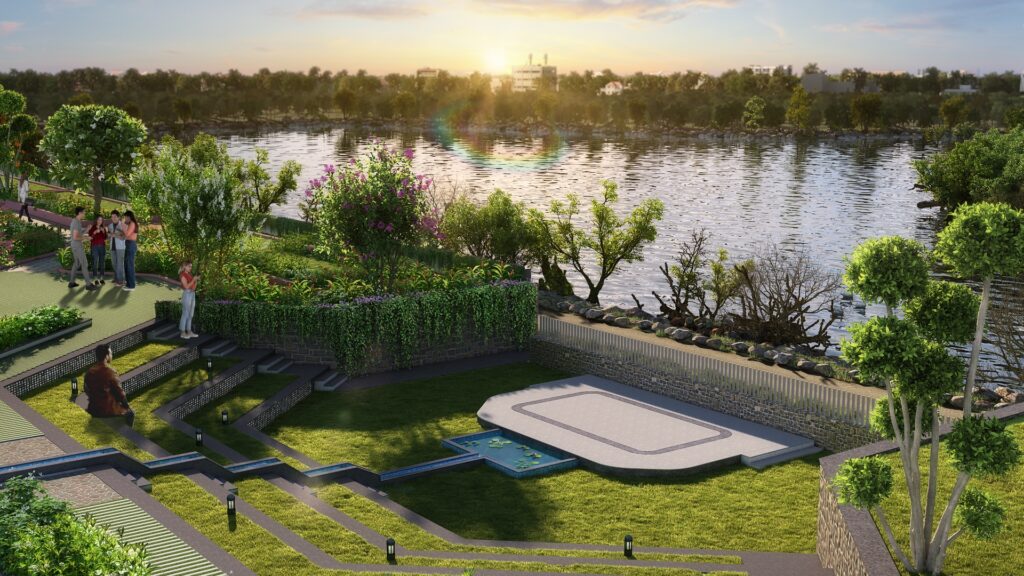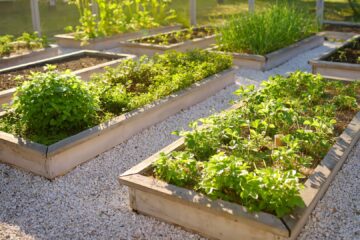Water scarcity has become an increasingly severe problem in urban areas, and Bengaluru, with its rapid growth, faces some of the most daunting challenges. The city’s escalating demand for water has severely strained its existing resources, often exacerbated by years with insufficient rainfall that leave the underground water table dry.
Recognizing these challenges early on, Nandi Housing has been at the forefront of integrating water conservation into our projects. Our proactive approach has not only anticipated these issues but also embedded sustainability into the core of our operations. As a conscientious builder, our commitment to developing only one project at a time ensures that the quality of living is not compromised, even in the face of growing environmental challenges.
Nandi Housing’s latest project – Nandi Meraki has incorporated several innovative water conservation initiatives to build a strong sustainable community in South Bangalore. Nandi Meraki is also the largest solar powered residential project in Bengaluru.
Here’s a closer look at these initiatives and some additional water conservation tips for Bengaluru residents.

Nandi Meraki’s Water Conservation Initiatives
- Rainwater Harvesting
One of the standout features of Nandi Meraki is its comprehensive rainwater harvesting system. The project will have storage tanks capable of holding up to 7 lakh liters of rain water. This system collects rainwater from the terraces of all four blocks of the project, which is then treated using an activated carbon filter. Post-treatment, the water is disinfected and redirected for domestic use in individual homes. This not only reduces dependence on municipal water supplies but also ensures that residents have access to clean water for several weeks.
- Low Flow Fixtures
Nandi Meraki has integrated low flow fixtures in its design, which are essential for reducing water waste. These fixtures include taps, showers, and WC flush systems that are engineered to use significantly less water than standard fixtures. By using these, the project achieves over 40% savings in water consumption. This not only helps in conserving water but also reduces the total water bills for residents, making it an economically beneficial choice as well.
- Eco STP (Sewage Treatment Plant)
The anaerobic Eco STP installation at Nandi Meraki will have a capacity of 325 KLD. The treated water from this plant is utilized for landscaping, flushing toilets, and washing cars. This reuse of wastewater is a significant step towards sustainable water management, ensuring that the water cycle within the project is maintained without excessive extraction from external sources.
Practical Water Conservation Tips for Bengaluru Residents
There are several practical measures that citizens living in individual houses and apartments can adopt to contribute to water conservation in Bengaluru:
-
Fix leaks promptly
One of the simplest yet most effective ways to save water is to fix leaks immediately. A dripping tap or a leaking toilet can waste a significant amount of water — up to thousands of liters a year.
-
Install water-saving devices
Individuals can install several water-saving devices in their homes like aerators on taps, low-flow showerheads and dual-flush toilets that can substantially reduce water usage. Installing individual water meters in apartments is also a great way for effective water management. It allows homeowners to monitor their consumption patterns and identify any sudden increases in water usage.
-
Use water-efficient appliances
For appliances like dishwashers and washing machines, opt for those that have better ratings for their water efficiency. These appliances use less water, which helps conserve resources and reduce utility bills.
-
Practice rainwater harvesting
Setting up a rainwater harvesting system at home can be an excellent way to reduce dependency on municipal water. The harvested water can be used for gardening, flushing toilets, and other non-potable purposes.
-
Educate and encourage community involvement
Creating awareness about the importance of water conservation and encouraging community involvement can amplify the impact of individual efforts. Community-driven initiatives like group rainwater harvesting or community gardens can foster a culture of sustainability. A great example of this is the water conservation efforts taken by the RWA and the residents of Nandi Woods. It was recognised and awarded second place by BAF (Bangalore Apartments Federation) as one of the communities that is implementing innovative methods to conserve water.Water conservation is a critical need, especially in water-stressed cities like Bengaluru. The initiatives taken by Nandi Meraki serve as exemplary models of how modern residential complexes can contribute to solving broader environmental issues. By adopting these practices and encouraging broader community participation, Bengaluru can navigate towards a more sustainable and water-secure future.


